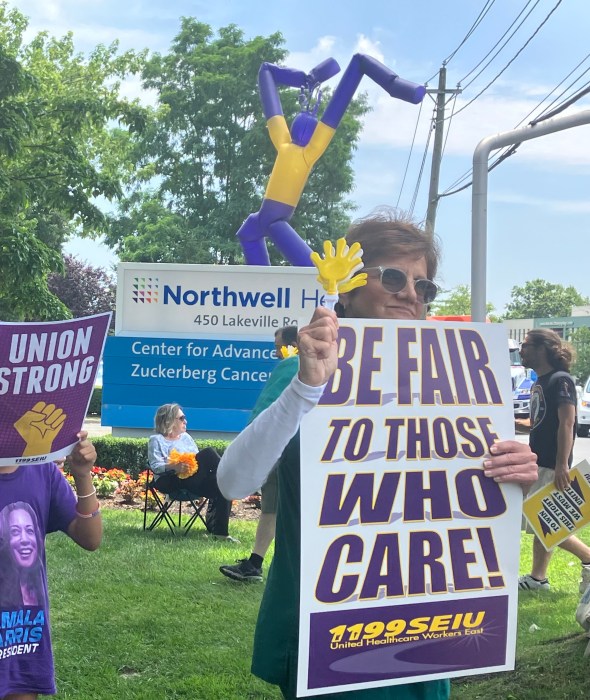The so-called silver tsunami of aging Baby Boomers is creating a big spike in demand for home health aides to care for those who prefer to stay at home on Long Island.
Of 1.3 million Nassau County residents, more than 310,000 are older than 60 and the fastest-growing segment is those older than 85, who are expected to increase by 25 percent from 2015 to 2040. In 2015, Suffolk County had more than 320,000 residents age 60-plus and the population of 85-plus seniors is expected to more than double to 63,516 by 2040, according to the New York State Office for the Aging.
“Nassau County is getting older at a rapid pace,” says Jorge Martinez, deputy commissioner of the Nassau County Office for the Aging.
In 2016, the Bureau of Labor Statistics (BLS), U.S. Department of Labor reported 2,927,600 home health aides and personal care aides employed in the United States. The BLS predicts a 41 percent increase in this industry by 2026 with 4,136,400 active employees.
“People want to age in their homes and in their communities as long as possible and not go to institutions for services,” says Bill Ferris, associate state director for advocacy for the American Association of Retired Persons (AARP). “Home care is one of the ways that keeps people who need services in their homes.”
WHAT IS HOME HEALTHCARE?
There are two different types of home care agencies: licensed and certified.
“The certified agency provides skilled services, such as physical therapists, to go into the home and are primarily reimbursed by Medicare,” explains Nancy Geiger, director of Gurwin Home Care Agency, Inc., a licensed agency that provides health aides and companions to Nassau and Suffolk counties. “Most people access this type of service upon being discharged from a rehabilitation facility or hospital.”
Agencies like Gurwin also provide such skilled services as nursing, speech therapy, occupational therapy and social work.
“The licensed agency provides paraprofessional services that are delivered by home health aides,” Geiger explains. “Specific services include showering, dressing, meal preparations, laundry, etc.”
They can also support services provided by a certified agency, for example, motivating patients to exercise according to a plan prescribed by a physical therapist.
WHO QUALIFIES?
“Anyone qualifies for home health care, but those who are in the most need are the elderly and people with disabilities,” says Greg Massimi, chief operating officer of TLC Companions in Bethpage.
When considering home healthcare, Massimi says it’s important to recognize if the patient is able to live independently or not.
“Can the patient do all of their necessary tasks independently?” he asks. “If not, then home health care would certainly be able to provide the patient with a higher standard of life.”
WHAT ARE THE BENEFITS?
“An aide can alleviate the feeling of having no one to talk to while also assisting with tasks around the house,” says Massimi. “An aide [also] allows for the family members of the patient to continue to live their lives uninterrupted while having the peace of mind that their loved one is being taken care of,” he adds.
But family members should do their due diligence.
“When you’re looking for an agency, you really have to do your homework,” says Amy Recco, co-owner with husband Michael of Friends for Life Homecare in Massapequa.
An assessment or consultation will help determine what is covered by Medicare or long-term healthcare insurance, what can be afforded out of pocket, time or supervision required from an aide, and specific needs of your loved one, she says.
Transitioning to home health care is not always easy. Both patients and their loved ones need compassion and support.
“It’s a big change for the patient because they have come from a place of living alone — being totally functional by themselves — to becoming more dependent,” says Geiger. “A lot of times, they feel like they are a burden to their family.”
Rocco notes that caregiver support groups offer much-needed solace.
“It’s very important that the caretaker gets as much support and help that they need, knowing that they are not alone,” she adds.



































